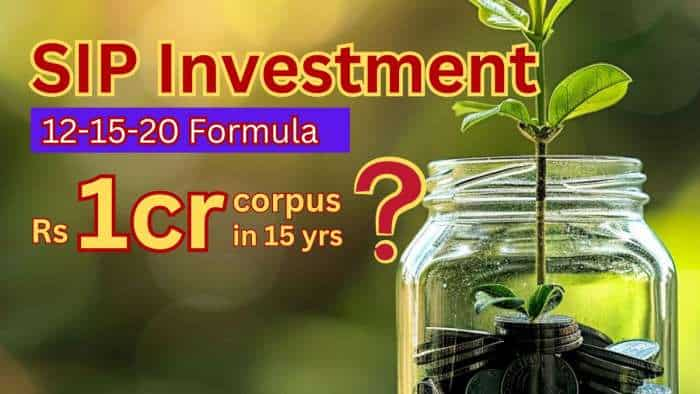Budget 2020: GDP growth expected to strongly rebound to 6-6.5 pc in FY'21: Eco Survey
However, it has also cautioned that continued global trade problems, escalation in US-Iran geopolitical tensions, and weak economic recovery in advanced economies are the downside risk which have the potential to drag down the growth.

India's economic growth is expected to "strongly rebound" to 6-6.5 per cent in 2020-21 from 5 per cent estimated in the current fiscal, the Economic Survey said on Friday, adding that the government with a strong mandate has the capacity to expedite reforms.
The Economic Survey 2019-20 tabled in Parliament said there are tentative signs of bottoming out of slowdown in manufacturing activity and global trade, which will have a positive impact on growth in the next fiscal.
The government's thrust on affordable housing, Make in India, reduction in corporate tax rate, and improvement in ease of doing business, besides others factors, will help in boosting economic growth, it said.
However, it has also cautioned that continued global trade problems, escalation in US-Iran geopolitical tensions, and weak economic recovery in advanced economies are the downside risk which have the potential to drag down the growth.
"On a net assessment, it appears that the upside risks should prevail, particularly when the government, with a strong mandate, has the capacity to deliver expeditiously on reforms.
"GDP growth of India should strongly rebound in 2020-21 and more so on a low statistical base of 5 per cent growth in 2019-20," said the survey tabled by Finance Minister Nirmala Sitharaman.
On a net assessment of both the downside/upside risks, it said "India's GDP growth is expected to grow in the range of 6 to 6.5 per cent in 2020-21."
On 2019-20 GDP, it said the estimate of 5 per cent growth suggests an uptick in expansion in the second half of 2019-20.
The survey also stresses that deceleration in GDP growth can be understood within the framework of a slowing cycle of growth. The financial sector has acted as a drag on the real sector.
The survey said that the uptick in second half of 2019-20 would be mainly due to 10 positive factors like picking up of Nifty India Consumption Index for the first time this year, an upbeat secondary market, higher FDI flows, build-up of demand pressure, positive outlook for rural consumption, rebound of industrial activity, steady improvement in manufacturing, growth in merchandise exports, higher build-up of foreign exchange reserves and positive growth rate of GST revenue collection.
The document also emphasised that merger of public sector banks may increase the financial strength of the merged entities, lower the risk aversion and result in lowering of lending rates.
Watch Zee Business live TV below:
Further, as the implementation of GST further settles down, the increased unification of the domestic market may reduce business costs and facilitate fresh investment.
Reforms in land and labour market may further reduce business costs, said the survey, presented a day before Sitharaman's Union Budget 2020-21.
Get Latest Business News, Stock Market Updates and Videos; Check your tax outgo through Income Tax Calculator and save money through our Personal Finance coverage. Check Business Breaking News Live on Zee Business Twitter and Facebook. Subscribe on YouTube.
RECOMMENDED STORIES

Senior Citizen Latest FD Rates: Know what major banks like SBI, PNB, Canara Bank, HDFC Bank, ICICI Bank are providing on fixed deposits

Gratuity Calculator: Rs 38,000 as last-drawn basic salary, 5 years and 5 months of service; what will be gratuity amount?

Retirement Planning: In how many years your Rs 25K monthly SIP investment will grow to Rs 8.8 cr | See calculations

Top 5 Small Cap Mutual Funds with best SIP returns in 1 year: See how Rs 25,000 monthly investment has grown in each scheme

Top 7 SBI Mutual Funds With Best SIP Returns in 1 Year: Rs 25,000 monthly SIP investment in No.1 fund has jumped to Rs 3,58,404

SBI 5-Year FD vs MIS: Which can offer higher returns on a Rs 2,00,000 investment over 5 years? See calculations
04:09 PM IST










 Technical Check: This smallcap Budget 2022 pick forms Rounding Bottom bullish breakout; 30% upside possible in 2-3 months
Technical Check: This smallcap Budget 2022 pick forms Rounding Bottom bullish breakout; 30% upside possible in 2-3 months MFIs pitch for issuance of tax free social bonds by NABARD, SIDBI
MFIs pitch for issuance of tax free social bonds by NABARD, SIDBI We are open to tweaking inside & outside Budget: FM Nirmala Sitharaman
We are open to tweaking inside & outside Budget: FM Nirmala Sitharaman Government willing to do more beyond Budget to boost growth: FM Nirmala Sitharaman
Government willing to do more beyond Budget to boost growth: FM Nirmala Sitharaman #ZeeBusinessNumber1: Channel creates history, becomes most-watched on Budget 2020 day
#ZeeBusinessNumber1: Channel creates history, becomes most-watched on Budget 2020 day